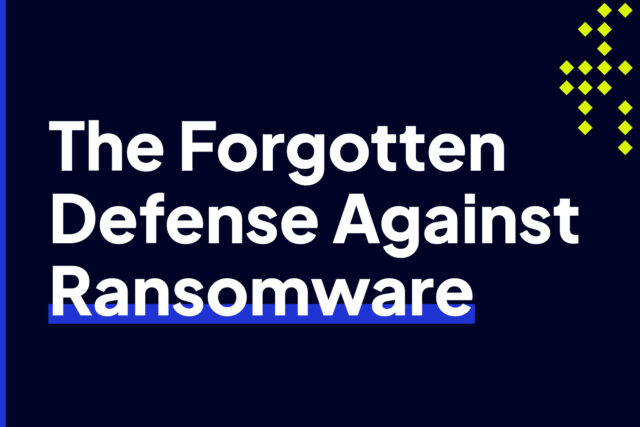
Countering State-Sponsored Cyber Threats
In the digital arena where invisible borders intersect, state-sponsored cyberattacks have emerged as a sophisticated instrument wielded by nation-states to undermine rivals, disrupt critical infrastructure, and sway political landscapes. In this post, we’ll explore the strategies employed in these cyber espionage and warfare efforts and provide insights into the defense mechanisms for safeguarding national security, economic vitality, and democratic integrity.
The convergence of nation-state cyber activities into modern warfare and international politics represents a profound paradigm shift, placing digital might at the forefront of global power dynamics. These covert operations, blending espionage, sabotage, and psychological warfare, not only threaten national security and economic equilibrium but also the integrity of democratic institutions.
To effectively counter such digital maneuvers, it is important to cultivate an acute understanding of the cyber threat landscape. Nations must deploy robust, multi-layered defense strategies that synergize cutting-edge technology, astute policy-making, and steadfast international collaboration. A united front is crucial for preserving sovereignty against the clandestine tactics employed by adversaries in the cybersphere, ensuring the stability and security of state infrastructure and electoral processes in an age where digital threats are an omnipresent challenge.
The Anatomy of State-Sponsored Cyber-Attacks
State-sponsored cyberattacks have complex, precise, and strategic objectives. Unlike cybercriminal activities motivated by financial gain, these operations seek to achieve political, military, or espionage ends. Techniques range from advanced persistent threats (APTs) that stealthily infiltrate networks to gather intelligence over long periods to disruptive attacks against critical infrastructure, such as power grids and financial systems.
Here are some examples targeting the United States and their ramifications:
Botnet Disruption of the People’s Republic of China
In a significant operation in December 2023, the U.S. Department of Justice disrupted a botnet composed of hundreds of small office/home office (SOHO) routers within the U.S., hijacked by the People’s Republic of China (PRC) state-sponsored hackers known as “Volt Typhoon.” These hackers infected the routers with the “KV Botnet” malware to obscure their hacking activities, which targeted critical infrastructure organizations in the U.S. and other countries. The compromised devices were primarily Cisco and NetGear routers that were vulnerable due to their “end of life” status, meaning they no longer received security updates from the manufacturer.
This operation neutralized a significant threat and underscored the strategic approach of state-sponsored actors in exploiting everyday devices to conduct espionage and potentially disrupt critical services. The disruption of the KV Botnet illustrates the ongoing battle against covert operations aimed at the U.S. infrastructure and highlights the importance of public-private partnerships in identifying and mitigating cybersecurity threats. The incident has increased awareness about the security of internet-connected devices and the necessity for timely updates and replacements to prevent similar vulnerabilities.
SolarWinds Hack
The SolarWinds breach, disclosed in December 2020, was a sophisticated supply chain attack that compromised the Orion software update mechanism to infiltrate the networks of numerous U.S. federal agencies and thousands of private companies. This campaign, attributed to Russian intelligence operatives, allowed unprecedented access to sensitive communications and data.
The SolarWinds hack underscored the vulnerabilities inherent in the global software supply chain, prompting a reevaluation of security practices among technology providers and their customers. The financial and operational impact of the breach was monumental, with costs associated with recovery and increased cybersecurity measures running into billions of dollars. The incident also strained diplomatic relations and led to sanctions against Russia, highlighting the geopolitical implications of cyber espionage.
Microsoft Exchange Server Attack
In early 2021, Chinese state-sponsored hackers exploited vulnerabilities in Microsoft Exchange Server, affecting tens of thousands of organizations worldwide. This campaign aimed to access email accounts and install additional malware for long-term espionage. The widespread exploitation of these vulnerabilities had significant security implications for businesses and government entities, compromising sensitive information and national security interests.
The incident led to an increased emphasis on securing critical software infrastructure and bolstered U.S.-China tensions, with the U.S. and allies publicly attributing the attack to the Chinese government.
Iranian Attacks on Financial Institutions
Between 2011 and 2013, Iranian cyber forces launched a series of DDoS attacks against U.S. financial institutions as retaliation for sanctions, impacting the online banking services of millions of Americans. These attacks highlighted the financial sector’s vulnerability to state-sponsored cyber activities and were the catalyst for the
banking industry and government agencies to bolster their cybersecurity defenses and collaboration efforts. The incidents underscored the need for robust DDoS mitigation strategies and public-private partnerships to protect critical financial infrastructure.
Overall Impact
These incidents collectively illustrate the multifaceted threat state-sponsored cyber activities pose against the United States. From covert espionage to direct attacks on critical infrastructure, the ramifications extend beyond immediate security breaches to encompass economic impacts, national security risks, and the erosion of international norms regarding state behavior in cyberspace.
The U.S. government’s response, including the disruption of the KV Botnet, reflects an evolving strategy that leverages legal tools, cybersecurity technologies, and international cooperation to defend against and deter such threats.
Defense and Resilience Strategies
Digital defending against state-sponsored cyber threats necessitates a multifaceted strategy that blends technological, strategic, and diplomatic efforts to bolster national resilience. Fundamental cybersecurity practices, such as cyber hygiene and a defense-in-depth approach, must be implemented across all sectors, ensuring layered security controls within government entities and critical infrastructure.
Simultaneously, enhancing public awareness and education on cybersecurity and fostering a robust legal and regulatory framework are vital. Collaboration and intelligence sharing among government agencies and the private sector are crucial for swiftly identifying and mitigating threats. The alliance capitalizes on the private sector’s innovation and specialized understanding to enhance the government’s predictive and responsive capabilities against digital threats. Through this partnership, governments gain access to cutting-edge technology and real-time intelligence, empowering preemptive actions and strategic responses.
Additionally, leveraging diplomatic channels and economic sanctions while working towards developing international norms and agreements aims to deter adversarial states from initiating cyber-attacks and promote responsible state behavior in cyberspace. This comprehensive approach, emphasizing the need for investment in advanced cyber defense technologies and international partnerships, underpins the collective effort required to protect against the sophisticated landscape of state-sponsored cyber aggression.
Conclusion
The escalating challenges posed by state-sponsored cyber activities on national security, economic prosperity, and the pillars of democratic governance necessitate a vigilant, comprehensive, and collaborative defense strategy. It is imperative to integrate advanced cybersecurity measures, foster international cooperation, and reinforce the democratic institutions foundational to societal stability.
By grasping the full scope of these cyber threats, implementing stringent cybersecurity protocols, and promoting global partnerships, nations, and democracies can adeptly navigate the intricacies of the cyber threat landscape. Safeguarding national interests in the digital era transcends government action alone, emerging as a societal obligation that demands unified action across all sectors to ensure the enduring sovereignty and security of the nation within the vast cyberspace domain.


